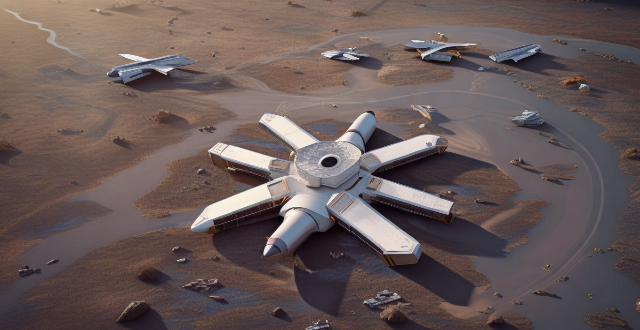The commercial space industry is facing environmental concerns such as carbon emissions, space debris, natural resource depletion, and radioactive waste disposal. To address these issues, companies can adopt sustainable practices, invest in new technologies, and explore alternative materials and energy sources. By doing so, they can reduce their impact on the environment and contribute to a more sustainable future.

The Sustainability of Commercial Space Industry and Environmental Concerns
The commercial space industry has been growing rapidly in recent years, with many companies investing heavily in developing new technologies and launching satellites into orbit. However, the sustainability of this industry is a topic of concern for environmentalists and policymakers alike. In this article, we will explore some of the key environmental concerns related to the commercial space industry and discuss potential solutions to address them.
Carbon Emissions
One of the main environmental concerns associated with the commercial space industry is carbon emissions. The manufacturing process of rockets and satellites requires a significant amount of energy, which often comes from fossil fuels. Additionally, the launch process itself releases large amounts of carbon dioxide into the atmosphere, contributing to climate change.
To reduce carbon emissions, companies can adopt more sustainable practices such as using renewable energy sources like solar or wind power for their operations. They can also invest in research and development of new technologies that require less energy consumption during the manufacturing process.
Space Debris
Another major environmental concern is space debris. As more satellites are launched into orbit, the risk of collisions between objects increases, creating even more debris. This debris can pose a threat to other satellites and spacecraft, potentially causing damage or even loss of life.
To address this issue, companies can implement better tracking systems to monitor the location and movement of debris in space. They can also develop technologies that allow for the safe removal or de-orbiting of old satellites and other space debris.
Natural Resource Depletion
The commercial space industry relies heavily on natural resources such as metals, minerals, and water. The extraction and processing of these resources can have negative impacts on the environment, including habitat destruction, water pollution, and soil erosion.
To minimize the environmental impact of resource extraction, companies can work towards reducing their overall resource consumption by implementing efficient manufacturing processes and recycling programs. They can also explore alternative materials that are more sustainable and have a lower environmental footprint.
Radioactive Waste Disposal
Nuclear power is often used in spacecraft due to its high energy density and long-lasting capabilities. However, the disposal of radioactive waste generated by these systems poses a significant challenge. Improper disposal can lead to contamination of the environment and health risks for humans and wildlife.
To address this issue, companies can invest in research and development of safer nuclear power systems that produce less radioactive waste. They can also explore alternative energy sources that do not generate harmful waste products.
Conclusion
While the commercial space industry has the potential to bring many benefits to society, it is important to address the environmental concerns associated with its growth. By adopting sustainable practices and investing in new technologies, companies can reduce their impact on the environment and contribute to a more sustainable future for all.